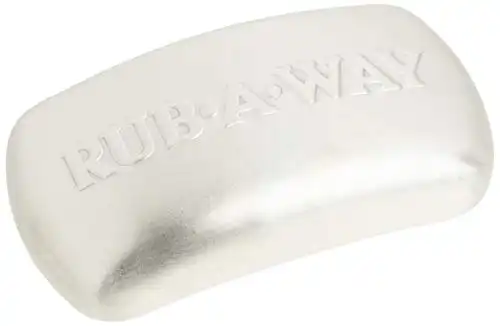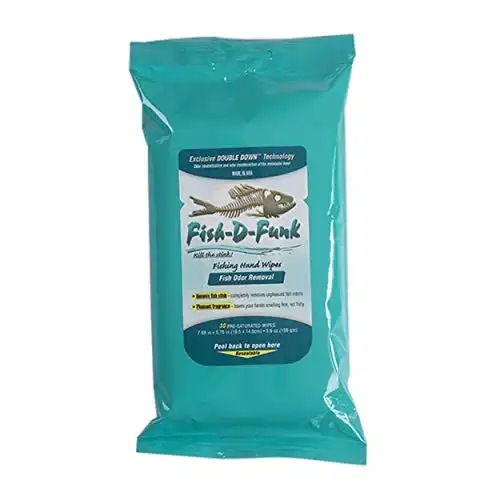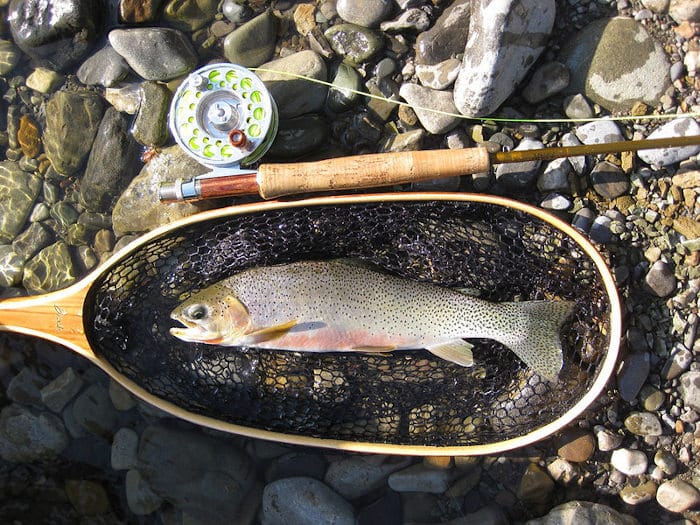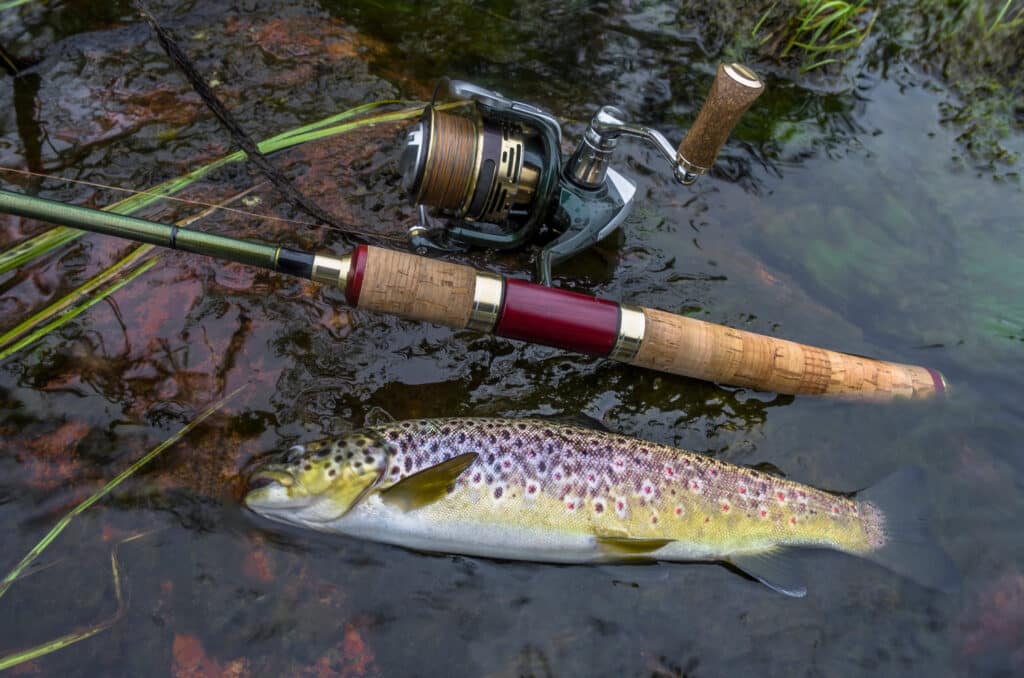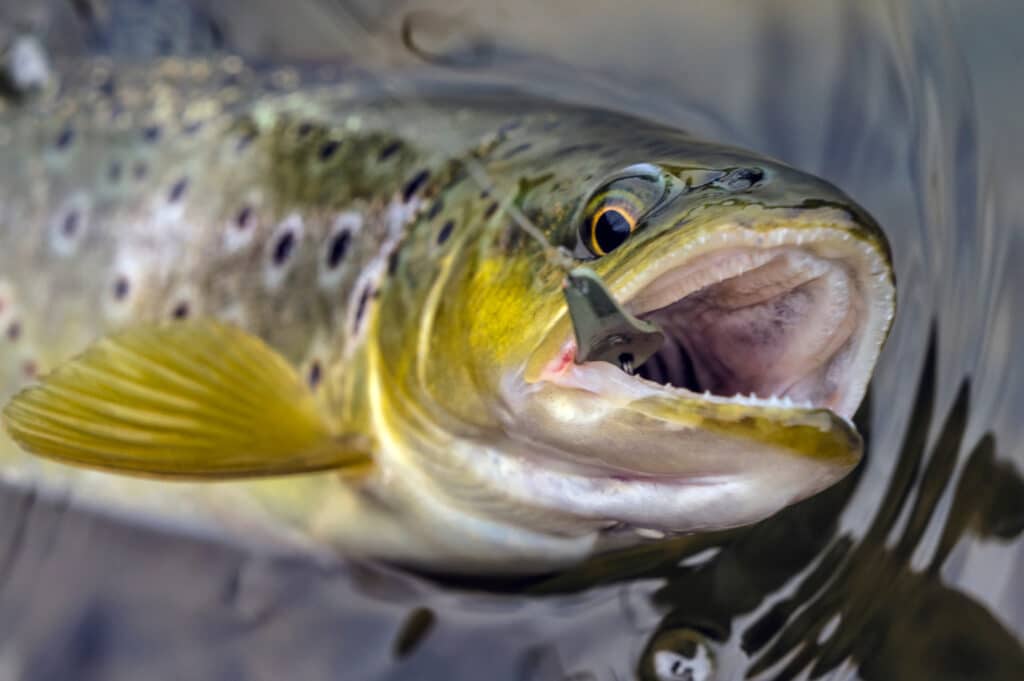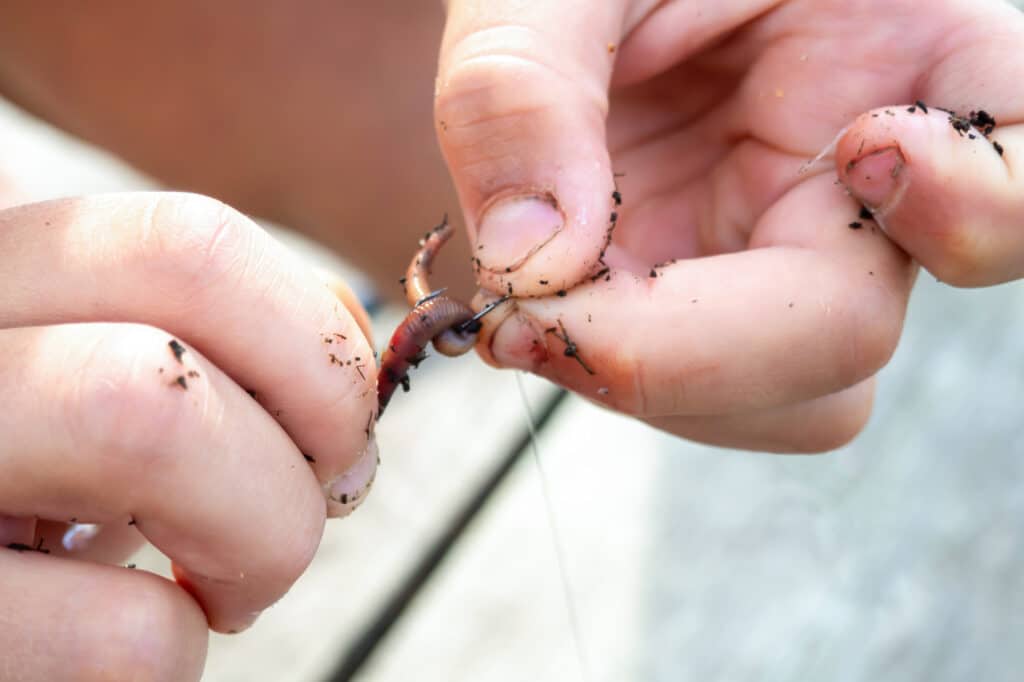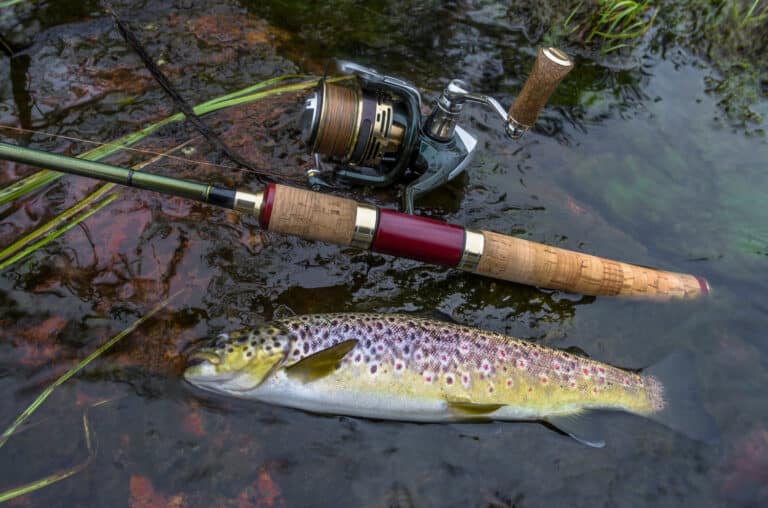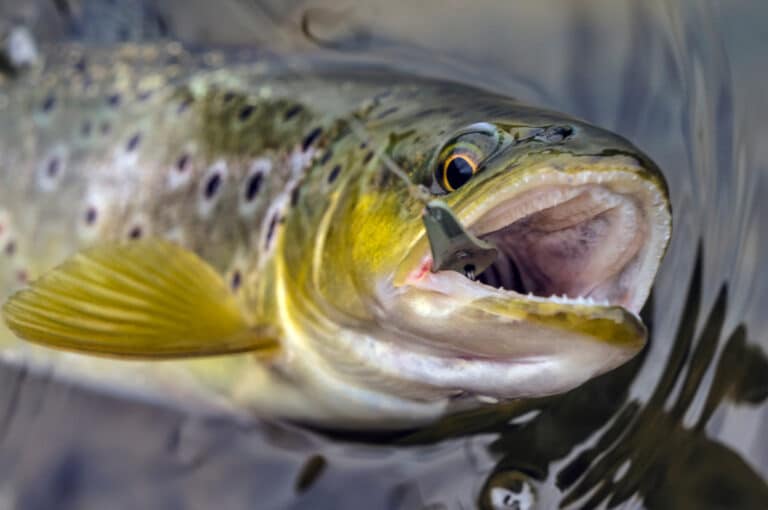Fish smell. It’s a fact of life that all anglers have to deal with, and coming home to your wife or kids smelling like a dirty pond never becomes less of a problem. But fishing is also a non-negotiable passion for many of us, so we all need reliable ways to get that nasty fishy odor to just go away.
Luckily, there are some science-backed ways (and some not-so) to get the fish smell to go away for good. In this post, I’ll give you 6 methods that I’ve personally used to get that fishy smell off your hands, and a few more you shouldn’t waste your time on.
What Even is “Fish Smell”?

Before I give you the methods, I want to briefly explain what fish smell is and why it seems so impossible to get rid of.
All fish are coated in a layer of mucous, or “fish slime” that serves a few purposes. The main one is to prevent infection from the many bacteria that live with and around fish. But that slime also contains a compound called trimethylamine oxide (or TMAO), which helps the fish maintain a balance of salt and withstand underwater pressure. TMAO quickly turns into triethylamine (or TMA) when exposed to air, which is what’s responsible for that characteristic fish smell.
TMA is a strong base that bonds to the oils and fats in your skin, making it ridiculously difficult to remove. Some of it will actually absorb into your skin cells, and the only way to get rid of that is to wait it out (don’t worry though, it’s not harmful). The good news is that most of it just bonds to the oils on top of your skin, and for that, we have some tricks that work surprisingly well.
The main idea in all of these methods is to neutralize the TMA base, which also eliminates the fishy smell. As you’ll notice, almost all of them (but not every single one) involve some sort of acid.
With that, here are the best ways to get the fish stink off your hands, most of which you probably already have at home.
1. Soap and Water
This one is obvious, but it should always be the first line of defense. It won’t neutralize any odors, but it will remove tons of the fishy material that will eventually cause odors. If you try to use the methods below before soap and water, they won’t work nearly as well.
Soap will also generally keep your hands bacteria-free, which is always good for food safety (if you’re eating your fish).
Dish soap like Dawn is the most effective, but use whatever you have on hand.
2. Baking Soda
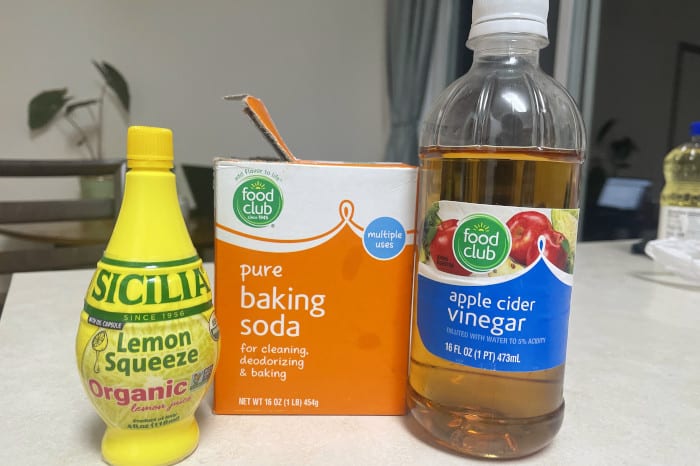
Many people will know that leaving an open container of baking soda in the fridge naturally absorbs odors and keeps it smelling fresh. It turns out that the same idea can be applied to fishy-smelling hands, and baking soda works wonders.
Baking soda is a weak base, but it can neutralize the pH of both acidic and basic compounds (source). That makes it a great option for removing fish smell from hands.
To use it, take a tablespoon or two of baking soda and add just enough warm water to form a paste. Then scrub your hands with it for at least 30 seconds, making sure to get all the cracks and corners.
The reason baking soda is the best option is that it neutralizes the unpleasant odor, and it’s also mildly abrasive. That means it’ll take some of the top layers of skin cells away with it, removing fish odor that would’ve been permanently trapped there.
3. Lemon Juice
Lemon juice is my second favorite method for two reasons. The first is that it’s the strongest acid (both ascorbic and citric acid) that most people have at home that’s also safe enough for the skin. That makes it the best neutralizer of fishy odors that most of us already have in our fridge.
The second is that lemon juice has its own pleasant smell, which keeps your hands smelling fresh even if there’s a little TMA left over. Hiding fish smell is almost as good as getting rid of it, and there’s no better odor camouflage than lemon juice.
To use it, just squirt some juice on your hands and scrub for at least a minute. Then rinse off with warm water and do it again. The second round is optional (depending on the amount of fish odor you’re okay with), but I like to do it with a quick rinse to keep that lemony fresh scent around.
4. GOJO Orange Soap
If you’re a mechanic, you know exactly what I’m talking about. GOJO (or any generic version) is the go-to industrial hand cleaner for removing auto grease or oil from your hands, and it also works for getting fish smell off your hands.
The reason is the same reason it works for grease removal; it completely strips away any loose oils on your hands. Since TMA binds to oils, the fish smell goes with it. It won’t neutralize the TMA itself, though, so it isn’t my number one option.
5. Vinegar
Vinegar is a slightly weaker acid than lemon juice, so it’s not quite as effective (though the difference is negligible). It also has its own smell that isn’t nearly as nice as lemon, so I only use it if that’s all I have on hand.
That said, it does work (white vinegar is best, but any will do). If you only have vinegar, then use it just like lemon juice. Scrub your hands with it for a minute, rinse, and repeat.
6. Stainless Steel Bars
This is the most dubious of my methods, and it’s not exactly my go-to. There isn’t much in the way of scientific evidence for it (though there are a few proposed mechanisms), but there is plenty of anecdotal evidence. Several companies even make a stainless steel bar that looks just like a bar of soap. Almost 20,000 reviews and 4.5 stars on Amazon have to mean something, right? I don’t think it works nearly as well as using acid, but I will say it seems to have some effect when that’s all I have.
The proposed mechanism is that the chromium in stainless steel reacts with the fish odors, either neutralizing or destroying them. There aren’t any legitimate scientific studies to back it up, but something may be going on there. If you think it works (and, more importantly, if your significant other thinks it works), then go for it.
The stainless steel “soap” bars are admittedly easy to use (and I do have one), but theoretically rubbing your hands on your stainless steel sink works just as well. Just get ’em wet with warm water and rub away (and send me an e-mail if it works for you; I want the real data here).
Honorable Mentions
There are several other methods that work well, too, but I’m putting them here because they’re all the same concept as above; just not quite as good.
Coffee Grounds
Coffee is acidic, and coffee grounds are abrasive. It’s the same concept as baking soda, but it doesn’t work as well because the acid just isn’t that strong. It also takes some time to dissolve the acid out of the coffee, so you’re generally better off with lemon juice or baking soda.
Alternatively, you could brew a fresh cup of coffee and use that with some added coffee grounds. It’s a little better, but still not as acidic as vinegar.
Crushed Saltine Crackers
This is a weird one, but I’ve seen and heard it often. It’s basically abrasive only, so its effect is pretty minimal. But if it’s all you’ve got, then I’d give it a shot. Some folks do swear by it.
Salt
Also just an abrasive, salt does nothing for neutralization. But again, the best cure is the one you have.
Toothpaste
Toothpaste definitely works, but really only if it has baking soda in it. And even then, making your own baking soda paste is much more concentrated, abrasive, and effective. One thing that toothpaste has going for it that others don’t, though, is that it’ll leave your hands smelling minty fresh.
Rubbing Alcohol
Rubbing alcohol is an incredible disinfectant, and it’s also well-known to combat odors. It’ll kill the bacteria that may cause some additional fishy smell, but it won’t get rid of the primary culprit (TMA). It’s not a bad idea, but it’s not great, either.
If you do go this route, just add a few drops to your hands and rub it around. It’ll evaporate quickly on its own, so no need to rinse your hands. Hand sanitizer uses rubbing alcohol as the active ingredient, so if you still have buckets of it from that one year we don’t talk about (you know what I mean), then that’ll work just as well.
The Best Technique While In The Field: Baby Wipes
The primary methods work better than baby wipes at home, but baby wipes are just so easy to bring on a fishing trip. They contain cleansing agents (i.e. soaps) and are slightly acidic (from citric acid), so they actually check the boxes that get the fish smell off your hands, too.
You can also buy fish smell removal wipes that are a little more expensive than average baby wipes, but work significantly better (seen in the photo above). Get them on Amazon or from Ardent Outdoors.
They’re not a perfect solution, but they sure are easy.
Fish Smell Removal Myths: Don’t Even Try Them
Getting rid of fish smells is pretty straightforward, but there’s some bad advice that I’ve seen floating around time and time again. Here are a couple of things that don’t work, so you never waste your time on them again.
1. A Baking Soda And Lemon Mixture
Many folks seem to think that if baking soda is good, and lemon juice is good, then mixing them can only be better. That’s not the case, though. The acidic lemon and basic baking soda will neutralize each other, leaving you nothing to scrub your hands with but water and a little sodium citrate. You’re better off mixing acids like lemon juice and vinegar, or using baking soda all on its own.
2. A Baking Soda And Vinegar Mixture
For the same reasons as above, this just doesn’t make sense. The acid and base neutralize each other, and you’re left with something that isn’t even as good as regular old soap and water. Save your money and time by skipping this one.
3. Olive Oil
This one is especially weird. Olive oil won’t remove the oils from your hands, it won’t neutralize the fishy odor, and oil is the worst abrasive I can think of. Olive oil has a pleasant scent on its own, so if you have absolutely nothing else to try, then it might be a little better than nothing. But in general, it’s not very useful.
Final thoughts
Hopefully, this post helps you understand why fishy hands just won’t stop smelling, and helps you be prepared to fight it in the future. So when you go on your next fishing trip, you can rest assured that you won’t be smelling bass on your hands for days. Good luck and tight lines!


